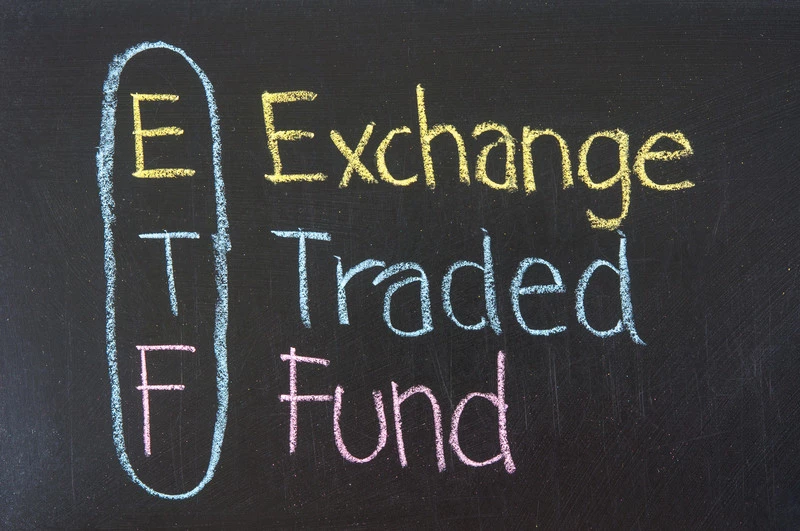Is the ETF price war a thing of the past?
Fund Launches and Updates
JP Morgan launched a new ETF focused on companies with reduced carbon dioxide emissions worldwide. The JPM Carbon Transition Global Equity UCITS ETF is tradable on Xetra and Börse Frankfurt. Link
Legal & General Investment Management (LGIM) has launched a clean energy ETF, the L&G Clean Energy Ucits ETF, which is designed to invest in companies that are at the forefront of the United Nations Sustainable Development Goal 7, which aims to substantially increase the provision of affordable and clean energy by 2030.
The fund is benchmarked against the Solactive Clean Energy Index NTR and is listed on the London Stock Exchange, Borsa Italiana, Deutsche Börse and Swiss SIX. The Dublin-domiciled ETF has a TER of 0.49% and its base currency is US dollars. Link
Flows
ETF investors, caught out by the result of the US presidential election, look set to reverse a months-long move out of pricey US growth stocks.
The move into value equities since July was, at least in part, in expectation that a Democratic “blue wave,” giving the party control of all US legislative bodies, would lead to massive fiscal stimulus.
Revised expectations look set to reverse the trend that started in July, since when investors have pumped a net $5.4bn into passive US value exchange traded funds, according to data from TrackInsight, even as they have withdrawn a still larger sum, $5.9bn, from the equivalent growth ETFs. Link
Eric Balchunas, a Bloomberg’s ETF expert, ETFs have taken in nearly half a trillion over the past 12 months, which is a $2b/day pace, wild numbers considering the year we had and the fact that active MF, index MF & HFs have all seen outflows.
Noteworthy
BlackRock selected by Oxford University Endowment Management to create Fossil Fuel Screened Equity Index Fund. Link
A cut-throat price war that has caused fees for mainstream exchange traded funds to sink to unprecedented lows may have now run its course. Average expense ratios for passive equity ETFs have almost halved from 0.34 per cent to to just 0.18 per cent in the US during the past decade, according to the Investment Company Institute.
Index-tracking bond ETFs are cheaper still at 0.14 per cent, down from a peak of 0.26 per cent in 2013, while some equity funds managed by Fidelity Investments are now free.
Half of industry professionals believe fees for traditional index-tracking ETFs have reached the minimum price point possible, according to a survey by EY.
In contrast, 95 per cent of industry figures believe fees for actively managed and so-called “smart beta” ETFs, which are typically far higher, will fall further. Link
The launch of the first offshore index exclusively tracking investment grade corporate bonds in China is attracting interest from exchange traded fund providers, despite continued obstacles facing foreign investors who wish to increase their allocations to China’s credit bonds.
The new Bloomberg Barclays Liquid China Credit Index, which is designed to track the liquid, tradable portion of onshore renminbi-denominated credit bonds, was launched last week, just days after the full inclusion of Chinese government and policy bank bonds into the Bloomberg Barclays Global Aggregate Index. Link
Active managers struggled to prove their worth, according to a FT article.
Reminding us that the past two decades have seen a shift from stockpickers to inexpensive, passively-managed index funds. During the past 10 years, passive equity funds have had inflows of more than $2tn, whilst active funds have suffered outflows of over $1.5tn.
There is now over $12tn in index funds globally across passive mutual funds and ETFs.
But is it fair to judge active managers in such an unprecedented time?
“This has been anything but a normal bear market,” says Michelle Seitz, chairman and chief executive of Russell Investments, pointing to extraordinary central bank stimulus and the dominance of big technology stocks in the subsequent recovery. “I don’t know how valid it is to look at a cycle like this and try to draw too many conclusions from it.” Link
A US ban on American investors holding shares in companies with suspected ties to China’s military sent stocks tumbling on Friday and threatened to create a host of compliance problems for global investors.
State-run China Telecom fell as much as 10.4 per cent and rival China Mobile as much as 6.3 per cent in Hong Kong following the executive order from US president Donald Trump, which raised questions about how investors would deal with existing stakes in the widely held companies.
The New York-listed stocks of both telecom groups also fell sharply after the announcement.
“They are mainstay index members of pretty much any index which has either passive or active tracking,” said Andy Maynard, a trader at China Renaissance, adding that compliance with the order would be “incredibly difficult”. Link
On a number of U.S. ETF analytics websites you can run which ETFs have exposure to China Telecom (ticker CHA). As an example, FNI holds has a small exposure of approximately $933k of the total fund or 0.51%.
Time will tell how this new ban impacts ETFs but at first glance it does not sound significant for now. Link

